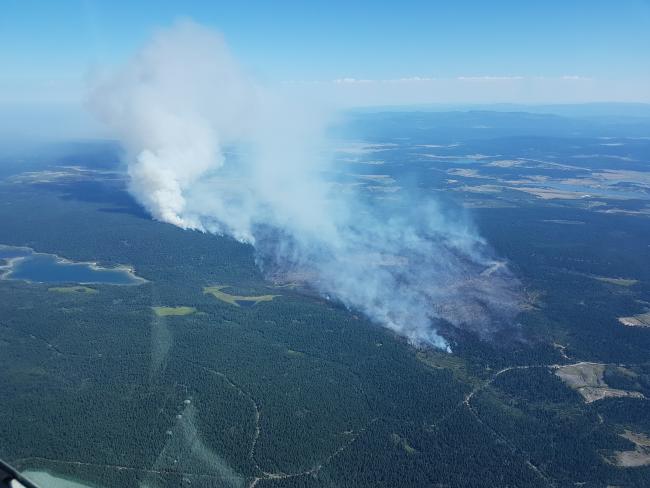Articles Menu

A five-point plan for mainstream media to cover fewer royal babies and more of our unfolding catastrophe.
To:
Karyn Pugliese, president, Canadian Association of Journalists
Martin O’Hanlon, president, CWA Canada
Fiona Conway, president, Radio Television Digital News Association
John Hinds, president and chief executive officer, News Media Canada
Jerry Dias, national president, Unifor
On May 6, the United Nations released a scientific report warning that around a million species are threatened with extinction due to human activity, including climate change. But, according to an analysis by Media Matters for America, on the day of that release, the nightly newscasts of ABC and NBC felt it was more important that their audiences learned about the birth of the newest Royal baby — someone who will likely never have any say over their day-to-day lives. And I’ve found most of Canada’s 15 most-read English language daily broadsheets felt the same way.
Between May 6 and 7, 13 of those newspapers failed to front stories about the United Nations’ devastating finding. Instead, the National Post ran a story about the Duke and Duchess of Sussex’s son, with 10 others teasing that birth on their front pages. Eight of the teasers were placed above-the-fold, next to a photograph, or both — drawing reader attention to pictures of Harry, Meghan and their beaming well-wishers.
In doing so, I want to be clear that I am not recommending journalists become activists. That isn’t our role, except when promoting and defending the rights and freedoms necessary for a functioning free press. However, we are responsible for ensuring Canadians have the information needed to make the rational and empathetic decisions that are supposed to underpin our political and economic systems, whether that’s at the ballot box or the checkout line. And we are further responsible for exposing public and private institutions when they are harming Canadians with their actions or inactions.
By that standard, the climate crisis should be the biggest story of our time. Due to government and corporate actions and inactions, we can expect a multitude of tribulations to be visited upon us. For example, by 2050, decreases in food availability caused by global warming could cause 529,000 additional deaths in that year alone. That warming could also cause as many as one billion people to flee their homes. And, in the United States, the cost of climate change could be US$35 billion per year.
However, in searching Canadian Newsstream — a database of 569 different English language Canadian news sources that includes a majority of the country’s newspapers, as well as CBC and CTV’s televised national evening newscasts — I have found our mainstream media too often does not reflect the scope and severity of that crisis in five important ways. In addition to failing to prominently place news about this story it has:
These are unconscionable failures of journalism, nothing more and nothing less. If we continue in these failures, we could be contributing to the deaths of millions. That’s not hyperbole. That’s a scientific estimate. And the science surrounding the harm humans are causing to our environment has long ago reached the certainty required for comprehensive and aggressive news coverage, as well as immediate political action.
So, in 2030, when we hit the deadline to reduce our carbon emissions by 45 per cent, do we want to say that we, as journalists, helped Canadians make the best possible personal and political decisions about this most important of issues or do we want to say we distracted them from those decisions by making the birth of a wealthy aristocrat our lead story?
We’re answering that question right now, whether we want to or not. And it’s well-past time we changed our response. So what I am asking you to do today is not dismiss this letter by defensively citing examples of when the Canadian news media has actually appropriately reported on the climate crisis. Instead, what I am asking you to do is recognize our failures, and call upon your members to do these five things: properly place, cover, contextualize, and localize the biggest story of our time, and hold public and private institutions to account for their actions and inactions on climate change — from the smallest governments to the biggest transnational corporations. It is simply our responsibility as journalists. I look forward to your prompt reply.
Sincerely,
Sean Michael Holman, associate professor of journalism, Mount Royal University
[Top photo: Few media stories mentioned the demonstrable connection between the climate crisis and increasing wildfire activity in BC last summer, even though it was one of the major reasons why that season was the worst on record. Photo via the BC Wildfire Service.]